Bridging BeSci & Data Science in the UN
Bridging Behavioural Science and Data Science in the UN
The Attention Economy and Human Capital
The Attention Economy
Herbert Simon on Information
What information consumes is rather obvious: it consumes the attention of its recipients. Hence a wealth of information creates a poverty of attention …
Simon (1971)
Human Capital Index
- World Bank Human Capital Index 2020
- UK outperforms USA and China
- Measures health and education
The Productivity and Attention Flywheels
Productivity Flywheel
Attention Reinvestment Cycle
Public Dialogue and Human-Centered Design
Public Dialogue on AI in Public Services
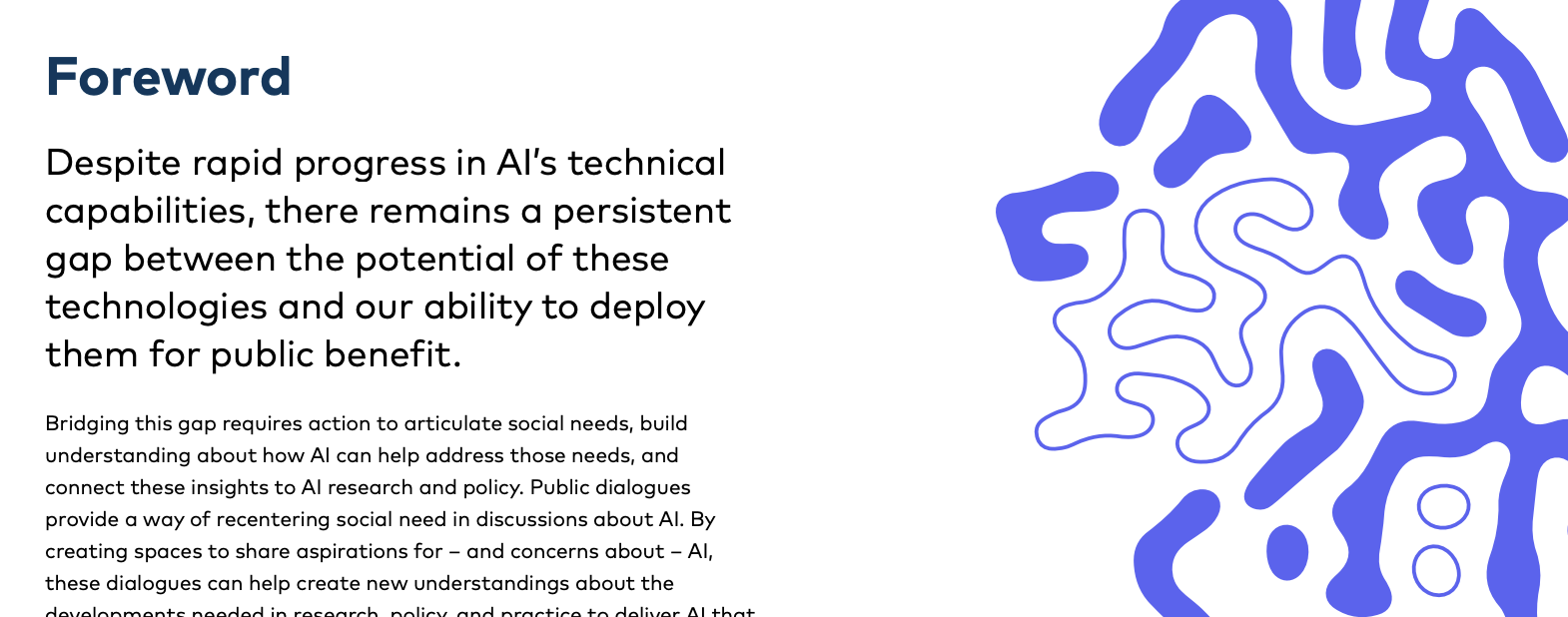
- September 2024 convened public dialogues.
- Perspectives on AI in priority policy agendas.
“I think a lot of the ideas need to be about AI being like a co-pilot to someone. I think it has to be that. So not taking the human away.”
Public Participant, Liverpool pg 15 ai@cam and Hopkins Van Mil (2024)
Bridging Behavioral Science and Data Science
New Flow of Information
Evolved Relationship
Evolved Relationship
New Productivity Paradox
- Current productivity flywheel relies on measurement to translate innovation into productivity.
- Without measurement how does the wheel spin?
HAM
Examples of Human-Centered Data Science
Example: Data Science Africa
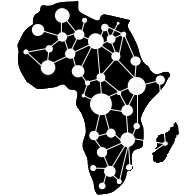
Data Science Africa is a bottom up initiative for capacity building in data science, machine learning and AI on the African continent
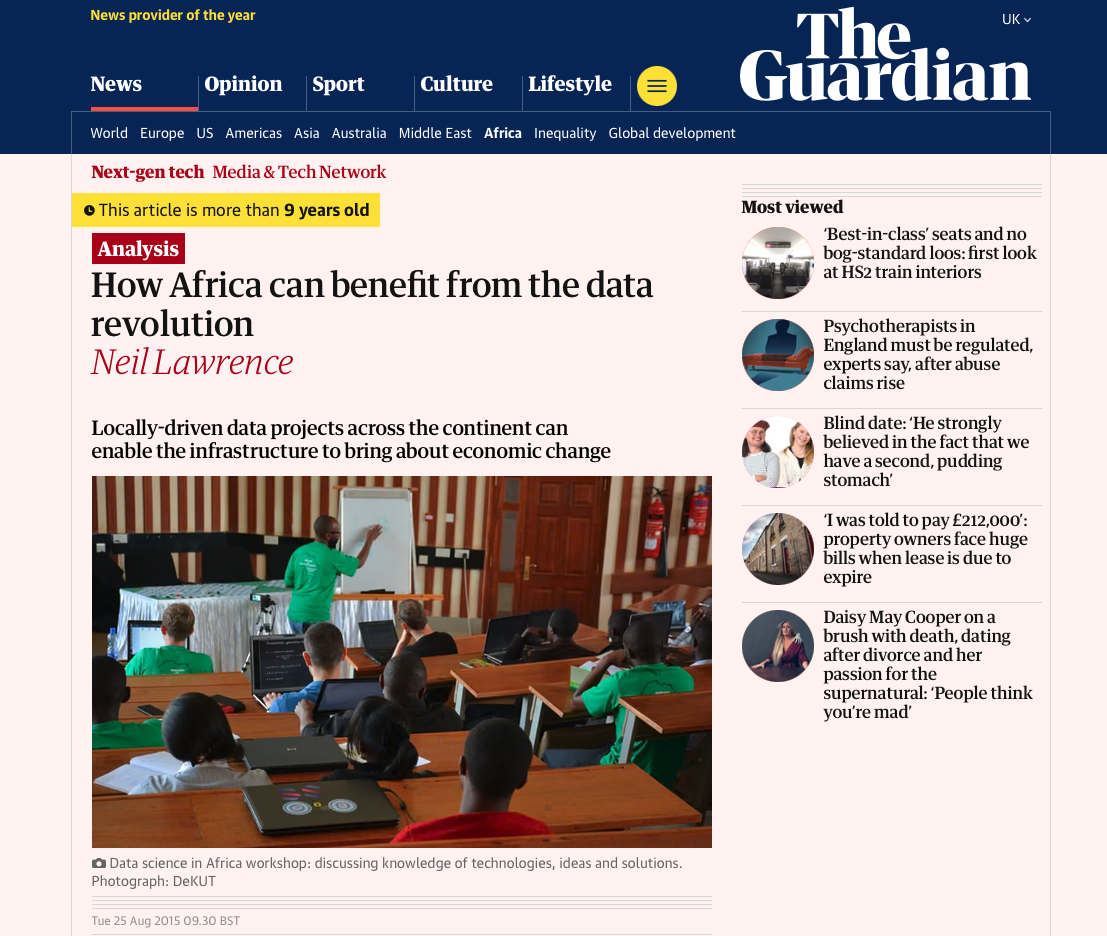
Example: Cambridge Approach
ai@cam
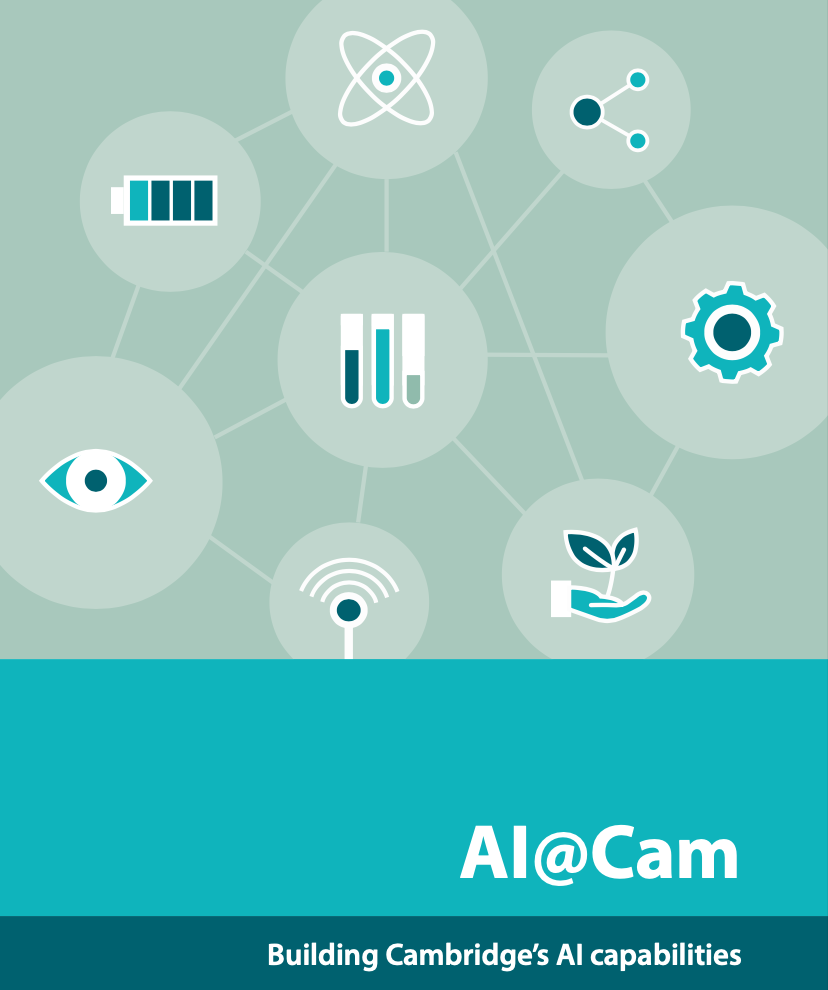
How ai@cam is Addressing Innovation Challenges
- A-Ideas (across 20 departments)
- Policy lab (with Bennett, Minderoo)
- HPC Pioneer projects (with RCS, C2D3)
- Accelerate programme (Schmidt Sciences funded)
Conclusion: The Innovation Economy
Innovation Economy Conclusion
- Interact directly with micro-demand
- Release quality attention
- Reinvest human capital in more innovation
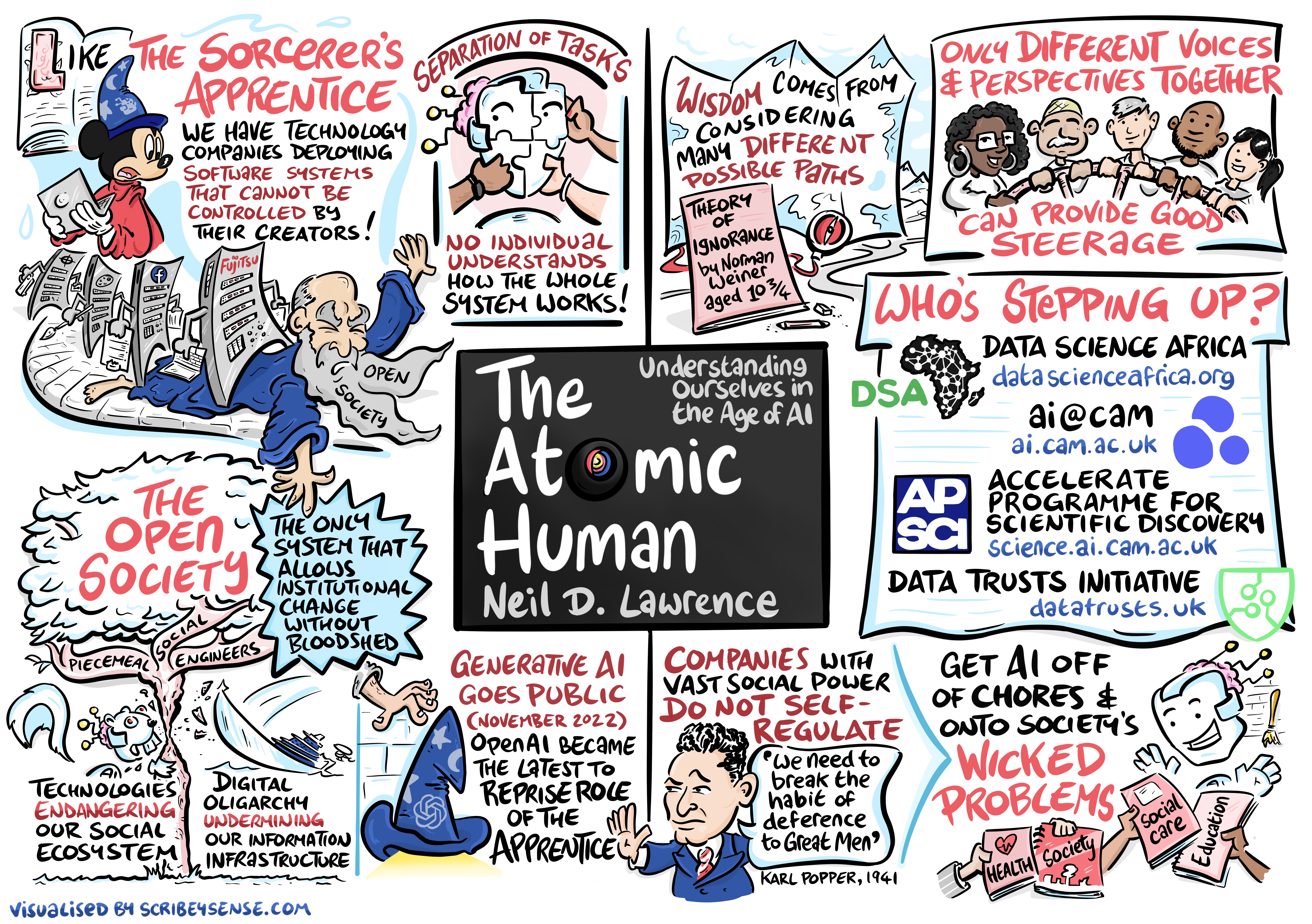
Thanks!
book: The Atomic Human
twitter: @lawrennd
The Atomic Human pages human-analogue machine (HAMs) 343-347, 359-359, 365-368 .
Guardian article on How African can benefit from the data revolution
Guardian article on Data Science Africa
blog posts: